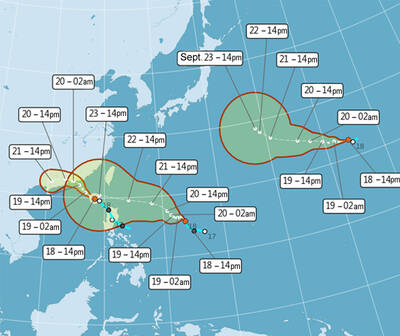Constitutional Court
Republic of China (Taiwan)
Press Release On the Same-Sex Marriage Case
For Immediate Release at 4 PM, May 24, 2017
On the consolidated petitions of Huei-Tai-12674 filed by Chia-Wei Chi and Huei-Tai-12771 filed by the Taipei City Government, regarding the constitutionality of same-sex marriage, the Constitutional Court announces the J.Y. Interpretation No. 748 at 4 PM on May 24, 2017.
The rulings of the Court are as follows:
(1)
The provisions of Chapter 2 on Marriage of Part IV on Family of the Civil Code do not allow two persons of the same sex to create a permanent union of intimate and exclusive nature for the committed purpose of managing a life together. The said provisions, to the extent of such failure, are in violation of both the people’s freedom of marriage as protected by Article 22 and the people’s right to equality as guaranteed by Article 7 of the Constitution.
(2)
The authorities concerned shall amend or enact relevant laws, in accordance with the ruling of this Interpretation, within two years from the issuance of this Interpretation. It is within the discretion of the authorities concerned to determine the formality for achieving the equal protection of the freedom of marriage.
(3)
If relevant laws are not amended or enacted within the said two years, two persons of the same sex who intend to create the said permanent union shall be allowed to have their marriage registration effectuated at the authorities in charge of household registration, by submitting a written document signed by two or more witnesses in accordance with the said Marriage Chapter.
The main reasons of this Interpretation are as follows:
(1)
For more than three decades, Petitioner Chia-Wei Chi has been appealing to the legislative, executive, and judicial departments for the right to same-sex marriage. After more than a decade, the Legislative Yuan is still unable to complete its legislative process on those bills regarding same-sex marriage. This case involves the very controversial social and political issues of whether homosexuals shall enjoy the equal protection of the same freedom of marriage as heterosexuals. The representative body is to enact or revise the relevant laws in due time. Nevertheless, the timetable for such legislative solution is hardly predictable now and yet these petitions involve the protection of people’s fundamental rights. It is the constitutional duty of this Court to render a binding judicial decision, in time, on issues concerning the safeguarding of constitutional basic values such as the protection of people’s constitutional rights and the free democratic constitutional order.
(2)
Those prior J.Y. Interpretations mentioning “husband and wife” or “a man and a woman”, in terms of the factual backgrounds of the original cases from which they arose, were made within the context of opposite-sex marriage. Thus far, this Court has not made any Interpretation on the issue of whether two persons of the same sex are allowed to marry each other.
(3)
Unspoused persons eligible to marry shall have their freedom to marry, which includes the freedom to decide “whether to marry” and “whom to marry” (see J.Y. Interpretation No. 362). Such decisional autonomy is vital to the sound development of personality and safeguarding of human dignity, and therefore is a fundamental right to be protected by Article 22 of the Constitution.
(4)
Creation of a permanent union of intimate and exclusive nature for the committed purpose of managing a life together by two persons of the same sex will not affect the application of the Marriage Chapter to the union of two persons of the opposite sex. Nor will it alter the social order established upon the existing opposite-sex marriage. Furthermore, the freedom of marriage for two persons of the same sex, once legally recognized, will constitute the collective basis, together with opposite-sex marriage, for a stable society. The need, capability, willingness and longing, in both physical and psychological senses, for creating such permanent unions of intimate and exclusive nature are equally essential to homosexuals and heterosexuals, given the importance of the freedom of marriage to the sound development of personality and safeguarding of human dignity. Both types of union shall be protected by the freedom of marriage under Article 22 of the Constitution. The current provisions of the Marriage Chapter do not allow two persons of the same sex to create a permanent union of intimate and exclusive nature for the committed purpose of managing a life together. This is obviously a gross legislative flaw. To such extent, the provisions of the Marriage Chapter are incompatible with the spirit and meaning of the freedom of marriage as protected by Article 22 of the Constitution.
(5)
Article 7 of the Constitution provides, “All citizens of the Republic of China, irrespective of sex, religion, race, class, or party affiliation, shall be equal before the law.” The five classifications of impermissible discrimination set forth in the said Article are only exemplified, neither enumerated nor exhausted. Therefore, different treatment based on other classifications, such as disability or sexual orientation, shall also be governed by the right to equality under the said Article.
(6)
Sexual orientation is an immutable characteristic that is resistant to change. The contributing factors to sexual orientation may include physical and psychological elements, living experience, and the social environment. Major medical associations have stated that homosexuality is not a disease. In our country, homosexuals were once denied by social tradition and custom in the past. As a result, they have long been locked in the closet and suffered various forms of de facto or de jure exclusion or discrimination. Besides, homosexuals, because of the demographic structure, have been a discrete and insular minority in the society. Impacted by stereotypes, they have been among those lacking political power for a long time, unable to overturn their legally disadvantaged status through ordinary democratic process. Accordingly, in determining the constitutionality of different treatment based on sexual orientation, a heightened standard shall be applied.
(7)
The Marriage Chapter does not set forth the capability to procreate as a requirement for concluding an opposite-sex marriage. Nor does it provide that a marriage is void or voidable, or a divorce decree may be issued, if either party is unable or unwilling to procreate after marriage. Accordingly, reproduction is obviously not an essential element of marriage. The fact that two persons of the same sex are incapable of natural procreation is the same as the result of two opposite-sex persons’ inability, in an objective sense, or unwillingness, in a subjective sense, to procreate. Disallowing two persons of the same sex to marry, for the sake of their inability to reproduce, is a different treatment having no apparent rational basis.
(8)
The basic ethical orders built upon the existing institution of opposite-sex marriage will remain unaffected, even if we allow two persons of the same sex to enter into a legally recognized marriage pursuant to the formal and substantive requirements of the Marriage Chapter, as long as they are subject to the rights and obligations of both parties during the marriage and after the marriage ends. Disallowing two persons of the same sex to marry, for the sake of safeguarding basic ethical orders, is a different treatment, also obviously having no rational basis. Such different treatment is incompatible with the spirit and meaning of the right to equality as protected by Article 7 of the Constitution.
(9)
The authorities concerned shall complete the amendment or enactment of relevant laws in accordance with the ruling of this Interpretation, within two years after the announcement of this Interpretation. It is within the discretion of the authorities concerned to determine the formality (for example, revision of the Marriage Chapter, enactment of a special Chapter in Part IV on Family of the Civil Code, enactment of a special law, or other formality) for achieving the equal protection of the freedom of marriage for two persons of the same sex.
(10)
If the amendment or enactment of relevant laws is not completed within the said two-year timeframe, two persons of the same sex who intend to create a permanent union of intimate and exclusive nature for the committed purpose of managing a life together may, pursuant to the provisions of the Marriage Chapter, apply for marriage registration to the authorities in charge of household registration, by submitting a document signed by two or more witnesses. Any such two persons, once registered, shall be accorded the status of a legally recognized couple, and then enjoy the rights and bear the obligations arising on couples.
Justice Jui-Ming Huang recused himself and took no part in the deliberation, oral arguments or the decision of this case.
Justice Horng-Shya Huang filed a dissenting opinion in part. Justice Chen-Huan Wu filed a dissenting opinion.

NEW AGREEMENT: Malaysia approved imports last year after nearly two years of negotiations and inspections to meet quarantine requirements, officials said Up to 3.6 tonnes of pomeloes from Taiwan cleared Malaysian customs on Friday, in the first shipment of Taiwanese pomeloes to Malaysia. Taiwan-grown pomeloes are popular in domestic and overseas markets for their tender and juicy taste, the Ministry of Agriculture’s Animal and Plant Health Inspection Agency said. The fruit is already exported to Japan, Canada, Hong Kong, Singapore and the Philippines, it added. The agency began applying for access to the Malaysian market in 2023, compiling data on climate suitability, pests and diseases, and post-harvest handling, while also engaging in nearly two years of negotiations with Malaysian authorities and submitting supplementary

PEAK MONTHS: Data showed that on average 25 to 27 typhoons formed in the Pacific and South China seas annually, with about four forming per month in July and October One of three tropical depressions in the Pacific strengthened into a typhoon yesterday afternoon, while two others are expected to become typhoons by today, Central Weather Administration (CWA) forecaster Lee Ming-hsiang (李名翔) said yesterday. The outer circulation of Tropical Depression No. 20, now Typhoon Mitag, has brought light rain to Hualien, Taitung and areas in the south, Lee said, adding that as of 2pm yesterday, Mitag was moving west-northwest at 16kph, but is not expected to directly affect Taiwan. It was possible that Tropical Depression No. 21 would become a typhoon as soon as last night, he said. It was moving in a

Tigerair Taiwan and China Airlines (CAL) today announced that several international flights were canceled or rescheduled due to Typhoon Ragasa. The Central Weather Administration (CWA) has maintained sea and land warnings for the typhoon. Its storm circle reached the Hengchun Peninsula (恆春半島) on Taiwan's southern tip at 11am today. Tigerair Taiwan said it canceled Monday's IT551/IT552 Taoyuan-Da Nang, IT606/IT607 Taoyuan-Busan and IT602 Taoyuan-Seoul Incheon flights. Tomorrow, cancelations include IT603 Seoul Incheon-Taoyuan, as well as flights between Taoyuan and Sapporo, Osaka, Tokyo Narita, Okinawa, Fukuoka, Saga, Tokyo Haneda, Nagoya, Asahikawa and Jeju. On Wednesday, the IT321/IT322 Kaohsiung-Macau round-trip would also be canceled. CAL announced that today's

About nine Taiwanese are “disappeared,” detained, or otherwise deprived of freedom of movement in China each month, the Mainland Affairs Council (MAC) said yesterday. Between Jan. 1 last year and Aug. 31 this year, 188 Taiwanese travelers went missing, were detained and interrogated, or had their personal freedom restricted, with some questioned in airports or hotel lobbies, the council said. In a statement ahead of the Mid-Autumn Festival, the council urged people visiting China for any reason to be highly vigilant and aware of the risks. Of the reported cases, 50 people were “disappeared” after entering China, 19 were detained and 119 had